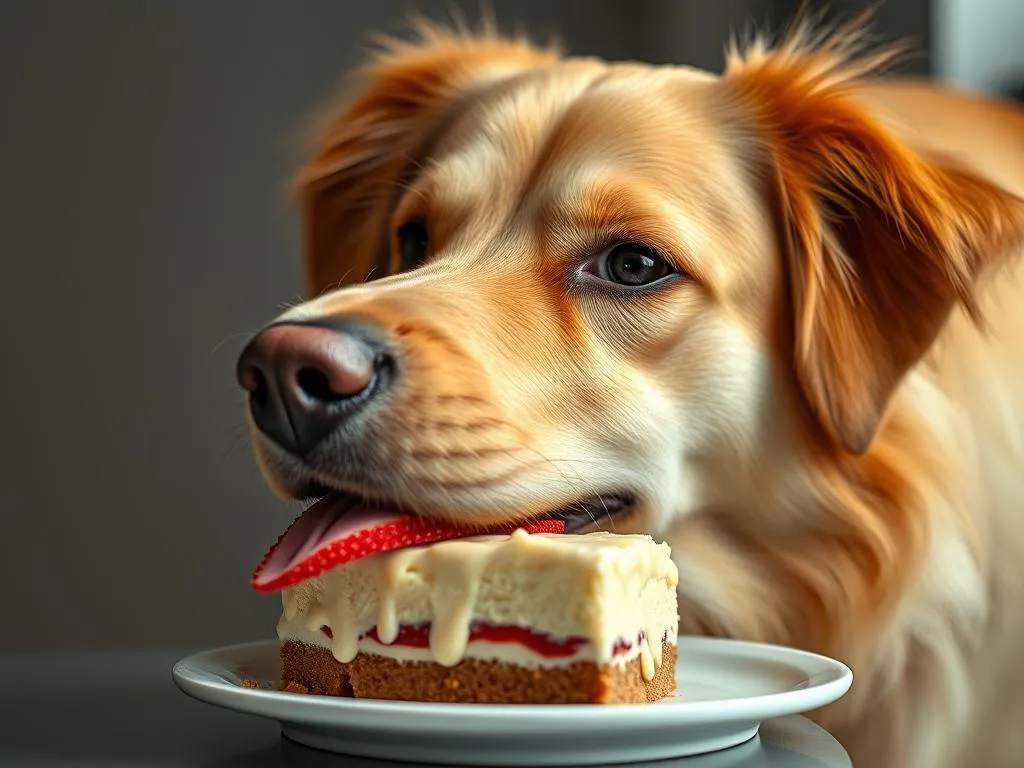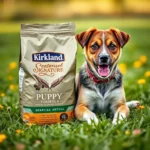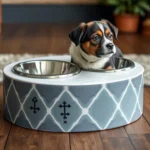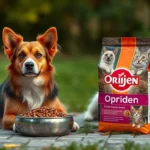
Introduction
Understanding dog nutrition is crucial for maintaining the health and well-being of our furry friends. Just like humans, dogs require a balanced diet to thrive, which includes the right proportion of proteins, fats, carbohydrates, vitamins, and minerals. However, many pet owners often wonder what human foods are safe for dogs. One such food that sparks curiosity is cheesecake. This article will explore whether dogs can eat cheesecake, the potential effects it may have on their health, and provide insights into healthier dog treat alternatives.
Understanding Dog Nutrition
Basic Nutritional Needs of Dogs
Dogs, like all animals, have specific nutritional needs. The primary macronutrients required in their diet include:
- Proteins: Essential for growth, maintenance, and repair of tissues.
- Fats: Provide energy and support cell structure while aiding in the absorption of certain vitamins.
- Carbohydrates: Serve as a source of energy, though they are not as critical as proteins and fats.
In addition to these macronutrients, dogs need various vitamins and minerals to support their overall health. For instance, calcium is vital for bone health, while B vitamins play a role in energy production. Water is another essential component of a dog’s diet, as it aids in digestion, circulation, and temperature regulation.
Common Nutritional Myths
There are numerous misconceptions surrounding dog nutrition. Some popular myths include the belief that all human food is harmful to dogs or that dogs thrive on a diet solely composed of meat. In reality, while certain human foods can be dangerous, many are safe and beneficial for dogs when given in moderation. Furthermore, dogs have different dietary requirements compared to humans, and their food must be tailored to their specific needs.
Human Foods Safe for Dogs
Fruits and Vegetables
Many fruits and vegetables are safe and even beneficial for dogs. Here are some common options:
- Apples: Rich in vitamins A and C, apples are a crunchy treat that many dogs enjoy.
- Carrots: Low in calories and high in fiber, carrots can promote dental health.
- Blueberries: Packed with antioxidants, blueberries are a fantastic snack for dogs.
These foods can provide essential nutrients and add variety to a dog’s diet.
Dairy Products
Dairy products can also be a part of a dog’s diet, but it’s essential to consider their individual tolerance. Some dogs can enjoy small amounts of dairy, such as yogurt or cheese, while others may be lactose intolerant. Lactose intolerance occurs when a dog’s digestive system cannot break down lactose, leading to upset stomach or diarrhea.
Cheesecake: An Overview
What is Cheesecake?
Cheesecake is a delightful dessert typically made from a mixture of soft, fresh cheese (commonly cream cheese), sugar, and eggs. It often has a crust made of crushed cookies or graham crackers. There are various types of cheesecake, including baked, no-bake, and flavored variations like chocolate or fruit.
Ingredients in Cheesecake
The main ingredients in cheesecake include:
- Cream Cheese: The primary component that gives cheesecake its rich texture.
- Sugar: Adds sweetness but can lead to obesity and dental issues in dogs.
- Eggs: Used for binding, but can pose a risk if raw.
- Crust: Usually made from graham crackers or cookies which may contain sugar and unhealthy fats.
While the basic ingredients can be safe in small amounts, some harmful ingredients can be present in certain cheesecake recipes:
- Chocolate: Toxic to dogs and should always be avoided.
- Xylitol: A sugar substitute that is highly toxic to dogs, even in small amounts.
- Certain flavorings: Ingredients like vanilla extract may contain alcohol, which is harmful to dogs.
Can Dogs Eat Cheesecake?
Nutritional Value of Cheesecake
Cheesecake is high in calories, fat, and sugar, making it a rich treat. For example, a typical slice of cheesecake can contain upwards of 300 calories, with a significant portion coming from fats and sugars. While it may be a delicious dessert for humans, its nutritional profile is not suitable for dogs.
Risks of Feeding Cheesecake to Dogs
Feeding cheesecake to dogs can pose several risks:
- Digestive Issues: Dogs have sensitive stomachs, and the richness of cheesecake can lead to upset stomach, vomiting, or diarrhea.
- Obesity: Due to its caloric density, regular consumption of cheesecake can contribute to obesity, leading to further health complications such as diabetes and joint issues.
- Dairy Allergies: Some dogs may have allergies or sensitivities to dairy products, which can cause gastrointestinal distress.
Safe Serving Suggestions
If you decide to let your dog indulge in a taste of cheesecake, moderation is key. Here are some guidelines:
- Offer only a small portion as an occasional treat.
- Monitor your dog for any adverse reactions after consuming cheesecake.
- Consider making a dog-friendly version that uses safe ingredients.
Healthier Alternatives to Cheesecake for Dogs
Dog-Safe Cheesecake Recipes
Instead of traditional cheesecake, you can make a dog-friendly version using healthier ingredients. Here’s a simple recipe:
Dog-Friendly Cheesecake Recipe
Ingredients:
– 1 cup plain yogurt (unsweetened)
– 1 cup cottage cheese (low-fat)
– 1 mashed banana
– 1 tablespoon honey (optional)
Instructions:
1. Blend all ingredients until smooth.
2. Pour into molds or a small dish.
3. Freeze until solid.
4. Serve as a special treat on a hot day!
Other Treat Options
There are plenty of other dog-friendly dessert options that can satisfy your dog’s sweet tooth without the risks associated with cheesecake:
- Frozen Yogurt Bites: Simply blend yogurt with fruit and freeze in small portions.
- Fruit Pops: Puree safe fruits and freeze in molds for a refreshing treat.
When introducing new treats, always consider moderation and variety to ensure a balanced diet for your pet.
Conclusion
In summary, while cheesecake may be a delicious indulgence for humans, it is not an appropriate treat for dogs. The high fat and sugar content, coupled with potential harmful ingredients, can lead to health issues. Instead, focus on providing safe and nutritious alternatives that can keep your dog happy and healthy. Always consult with a veterinarian for personalized dietary advice to ensure your furry friend receives the best care possible. Treat your dog with love and consideration by choosing safe, nutritious foods that support their health and well-being.









